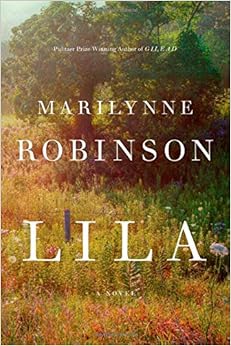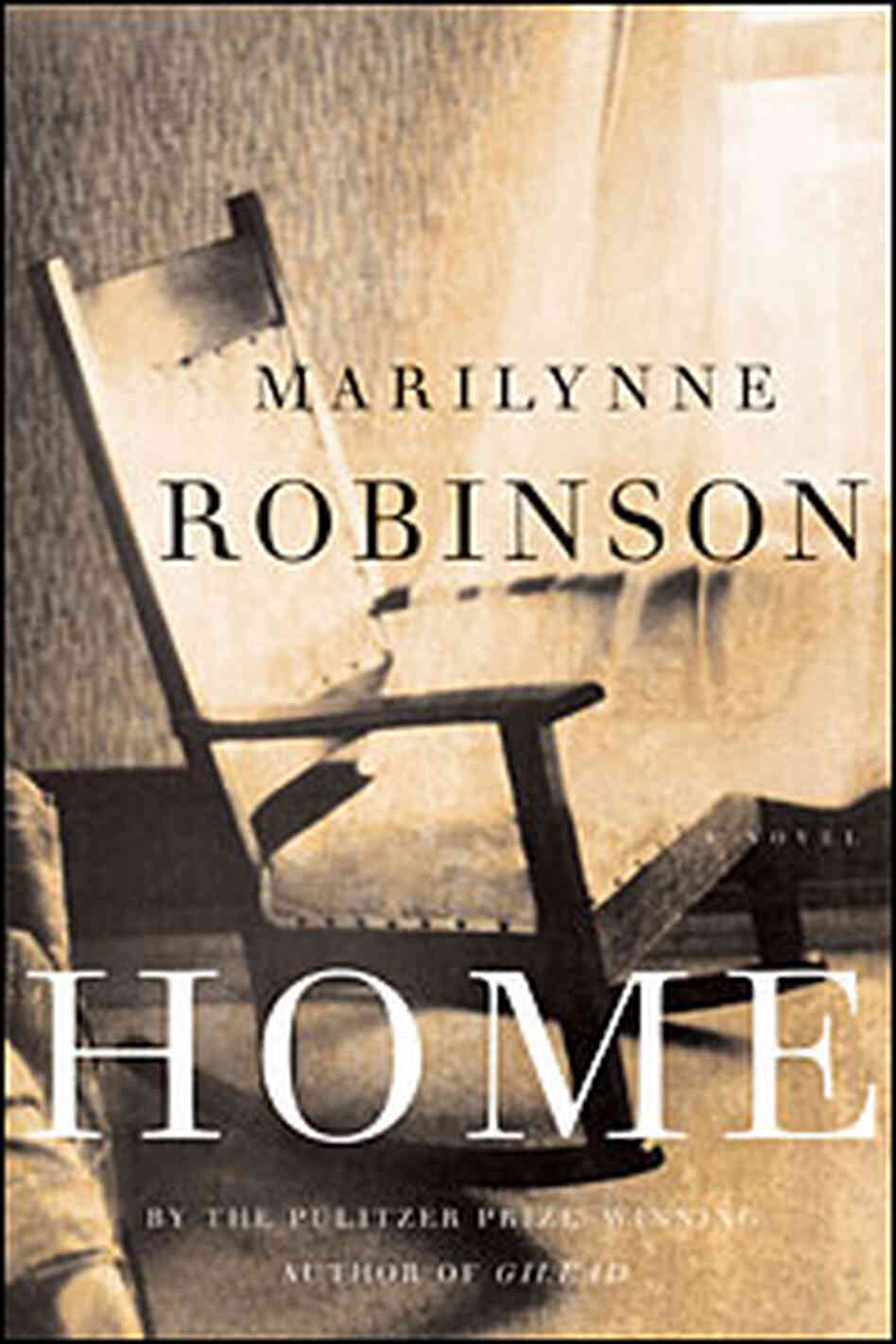The fact, or at least the degree, of human exceptionalism is often disputed. In some quarters it is considered modest and seemly for us to take our place among the animals, conceptually speaking--to acknowledge finally the bonds of kinship evolution implies. Yet, in view of our history with regard to the animals, not to mention our history with one another, it seems fair to wonder if the beasts, given a voice in the matter, would not feel a bit insulted by our intrusion. History is the great unfinished portrait of old Adam. In the very fact of having a history we are unique. And when we look at it we are astonished. Only in myth or nightmare could another such creature be found. What a thing is man.
Say, however, that God is a given, the God of the psalmist and of Jesus. Then it is possible to claim a dignity for humankind that is assured because it is bestowed on us, that is, because it is beyond even our formidable powers to besmirch and destroy. Say that the one earthly thing God did not put under our own feet was our own essential nature. The one great corrective to our tendency toward depredation would be a recognition of our abiding sacredness, since we are both, and often simultaneously, victim and villain. The divine image in us, despite all, is an act of God, immune to our sacrilege, apparent in the loveliness that never ceases to shine out in incalculable instances of beauty and love and imagination that make the dire assessment of our character, however solidly grounded in our history and our prospects, radically untrue.
I believe in God, and with some trepidation I will admit that I consider myself a Christian. I don't say that often, and I can recall clearly several instances in which people I know otherwise quite well have been shocked to hear it. Mostly I keep it to myself, partly because I don't want to be associated with a religious culture that feels to me increasingly shallow, mindless, and vicious. (Robinson talks about "the growing numbers among our people who have begun to reject [Christianity] as ignorant, intolerant, and belligerently nationalistic, as they might reasonably conclude that it is, if they hear only the loudest voices.") Partly because a belief in God is increasingly difficult to defend under the hyperrationalist terms that characterize our century. Partly it is just good, old-fashioned shame.
Robinson's new collection of essays,
The Givenness of Things, addresses all of my misgivings directly. But it's the lack of shame about her that captivates me most; the lack of any sheepishness or need to apologize for this belief. Robinson happily identifies herself as a throwback, a mainline Protestant with a fondness for the language and ideas of hymnals and prayer books, at a time when that seems an endangered species:
There is a word that fell like a curse on American religious culture--"relevance." Any number opf assumptions are packed into this word, for example, that the substance and the boundaries of a life can be known, and that they should not be enriched or expanded beyond the circle of the familiar, the colloquial. We encouraged ourselves to believe that our own small, brief lives were the measure of all things. Wisdom would have told us that our lives are indeed small and brief, like the billiosn that preceded them and the billions that will follow, but this information was precisely not welcome. Wisdom would have told us, too, that, by grace of our extraordinary gifts, and theirs, we are heirs to the testimonies of unnumbered generations. But these gifts, of course, failed the test of relevance, which was a narrow and ungenerous standard, systematically unforgiving of anything that bore the marks of another age, era, or decade.
The Givenness of Things is divided into a number of essays with short titles that promise reflections on broad, if profound topics, like "Grace," "Fear," and "Metaphysics." The first chapter, "
Humanism," recently published in
The Nation, shows that each can stand alone. But the book is really a single essay, with a few key themes that Robinson hits again and again.
First, she objects to rationalist and positivist ways of thinking which deny the reality of much of human experience. Neuroscience, for example, tries to reduce the very essence of our being to a series of physical, chemical, and electrical interactions, but this is a definition of the real which lops off, wholesale, thousands of years of human culture and learning. "Our realism," she writes, "distracts us from reality, that most remarkable phenomenon." But Robinson is far from anti-science; rather, she argues that positivists ignore the implication that the last century of scientific progress have led us to: that our old "nuts-and-bolts physics" is thoroughly insufficient to describe the world. "The antidote to our gloom," she writes, "is to be found in contemporary science," not least because the strangeness of the new vision of the cosmos--with its multiple dimensions, dark matter, and quantum entanglement--have resurrected the need for a metaphysics that positivism sought to bury.
Second, she argues that we have made a great mistake by removing human beings from the center of the cosmos. She puts the lie to the humanism of those "secular humanists" who diminish the uniqueness of the human being:
A number of times I have read or heard from the scientists and the rationalists that the brain is a peice of meat. This being true of the brain, then the brain/mind, the mind/soul, are degraded or dismissed by their being revealed in their actual, brutish nature. But why limit this insight to the brain? The entire human person is meat, except where it is bone, no enhancement. If it is reasonable to say the brain is meat, it is reasonable on the same grounds, the next time you look into a baby carriage, to compliment the mother on her lovely little piece of meat. I could as reasonably say that pieces of meat come to my classes, sit in the chairs, and gaze at me with something that looks for all the world like interest or indifference. Whatever else might be said of these living hams and chops and ribs, they seem to bore easily...
More to the point, what is meat? Complex life. And what is that? The universe's greatest mystery. It is meat that sings and flies and fledges, meat that makes civilizations and pulls them down.
Robinson labors over this point again and again, because as moderns we have trouble believing it, though it seems, by the time she's done, entirely self-evident. "Our brilliance," she writes, "has shown us grounds for utter humility. We could vanish into the ether like a breath, leaving nothing behind to say who we were, what we were. No doubt we will vanish in fact, mere transients in a cosmos that will realize itself over eons. How astonishing that we know this." That is, those rationalists who show us how small and insignificant we are in relation to the cosmos often take the wrong lesson, for no ape, bird, plant, or stone has any conception of what its relationship to the cosmos is, or can even conceive of a cosmos. Even our immense capacity for evil sets us apart, because "[t]here is something inversely godlike in our potential de-creation of the biosphere."
Finally, she argues that the exceptionalism of the human being is at the heart of Christianity. The book, toward its end, becomes a theological defense of Robinson's conception of Christianity and of Calvinism. She speaks beautifully and persuasively about the meaning of the Incarnation, which, she argues, isn't so much God taking on a human form as an expression of the way in which human beings, and Being itself, share and have always shared the nature of God:
I have spent all this time clearing the ground so that I can say, and be understood to mean, without reservation, that I believe in a divine Creation, and in the Incarnation, the Crucifixion, the Resurrection, the Holy Spirit, and the life to come. I take the Christian mythos to be a special revelation of a general truth, that truth being the ontological centrality of humankind in the created order, with its theological corollary, the profound and unique sacredness of human beings as such. The arbitrariness of our circumstance frees me to say that the Arbiter of our being might well act toward us freely, break in on us, present us with radical Truth in forms and figures we can radically comprehend.
As ever, Robinson's careful prose contains its own wonders; only now, typing that passage out, do I notice the exquisite application of the word "radically" to the verb "comprehend." Of course, that is part of Robinson's argument: comprehension itself is radical, and implies radical things. I will risk sounding like a fanboy, but I believe there's nothing short of remarkable in Robinson's gift for uniting beautiful ideas with beautiful words. In that way reading
The Givenness of Things is not so different from reading Robinson's fiction. And as much as I have loved and treasured
Housekeeping, Gilead, and
Lila, I think perhaps this book has meant the most to me.








